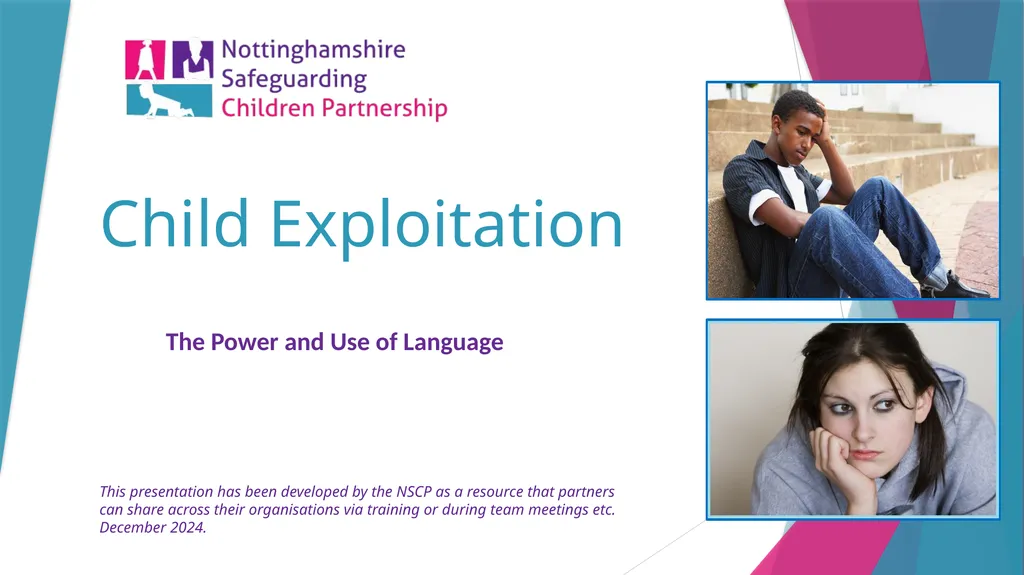
Author : jane-oiler | Published Date : 2025-08-04
Description: Child Exploitation The Power and Use of Language This presentation has been developed by the NSCP as a resource that partners can share across their organisations via training or during team meetings etc. December 2024. Making Words MatterDownload Presentation The PPT/PDF document "" is the property of its rightful owner. Permission is granted to download and print the materials on this website for personal, non-commercial use only, and to display it on your personal computer provided you do not modify the materials and that you retain all copyright notices contained in the materials. By downloading content from our website, you accept the terms of this agreement.
Here is the link to download the presentation.
"Child Exploitation The Power and Use of Language"The content belongs to its owner. You may download and print it for personal use, without modification, and keep all copyright notices. By downloading, you agree to these terms.













